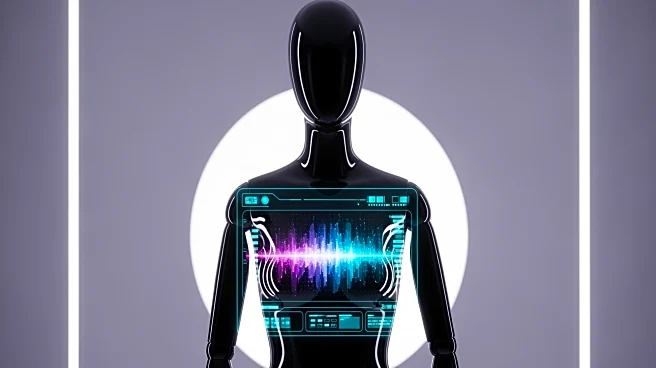What's Happening?
Fashion brands are grappling with the decision to incorporate artificial intelligence (AI) into their advertising strategies. Aerie, a brand under American Eagle, has decided against using AI-generated imagery in its marketing, maintaining a commitment
to authenticity that began with its 'Aerie Real' campaign in 2014. This decision aligns with the brand's effort to build trust with consumers, particularly Gen-Z, who are cautious about the rapid adoption of AI. Conversely, brands like H&M and Fiorucci are exploring AI to innovate and reimagine their brand identities. H&M has introduced digital twins of models, while Fiorucci has collaborated with AI artists to create unique content. These moves have sparked mixed reactions, with some consumers concerned about potential job losses in the modeling and creative industries.
Why It's Important?
The integration of AI in advertising represents a significant shift in the fashion industry, impacting how brands engage with consumers and manage their creative processes. Brands that embrace AI may gain a competitive edge by being at the forefront of technological innovation, potentially appealing to tech-savvy consumers. However, this approach risks alienating customers who value authenticity and human creativity. The debate over AI's role in advertising also highlights broader concerns about job displacement and the ethical implications of using AI in creative fields. As brands navigate these challenges, their decisions could influence industry standards and consumer expectations regarding transparency and authenticity in marketing.
What's Next?
As the fashion industry continues to experiment with AI, brands will need to carefully consider how they communicate their use of technology to consumers. Transparency about AI's role in marketing processes will be crucial to maintaining consumer trust. Brands may also need to invest in training teams to effectively integrate AI into their creative workflows, ensuring that human creativity remains central to their campaigns. The ongoing dialogue around AI in advertising is likely to shape future industry practices and consumer attitudes, with potential regulatory implications as well.
Beyond the Headlines
The use of AI in advertising raises ethical questions about the balance between innovation and authenticity. As brands explore AI's potential, they must navigate the tension between technological advancement and the preservation of human artistry. This dynamic could lead to new industry standards and practices, influencing how brands approach creativity and consumer engagement in the digital age.















